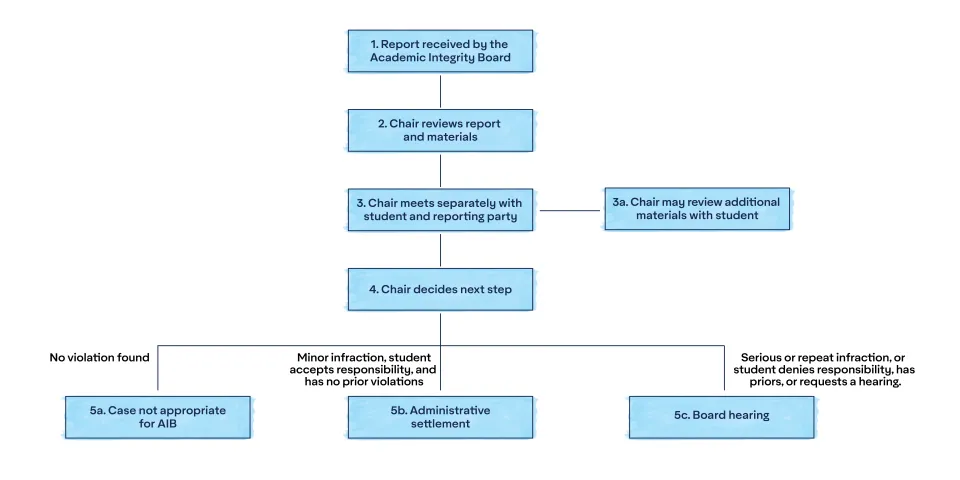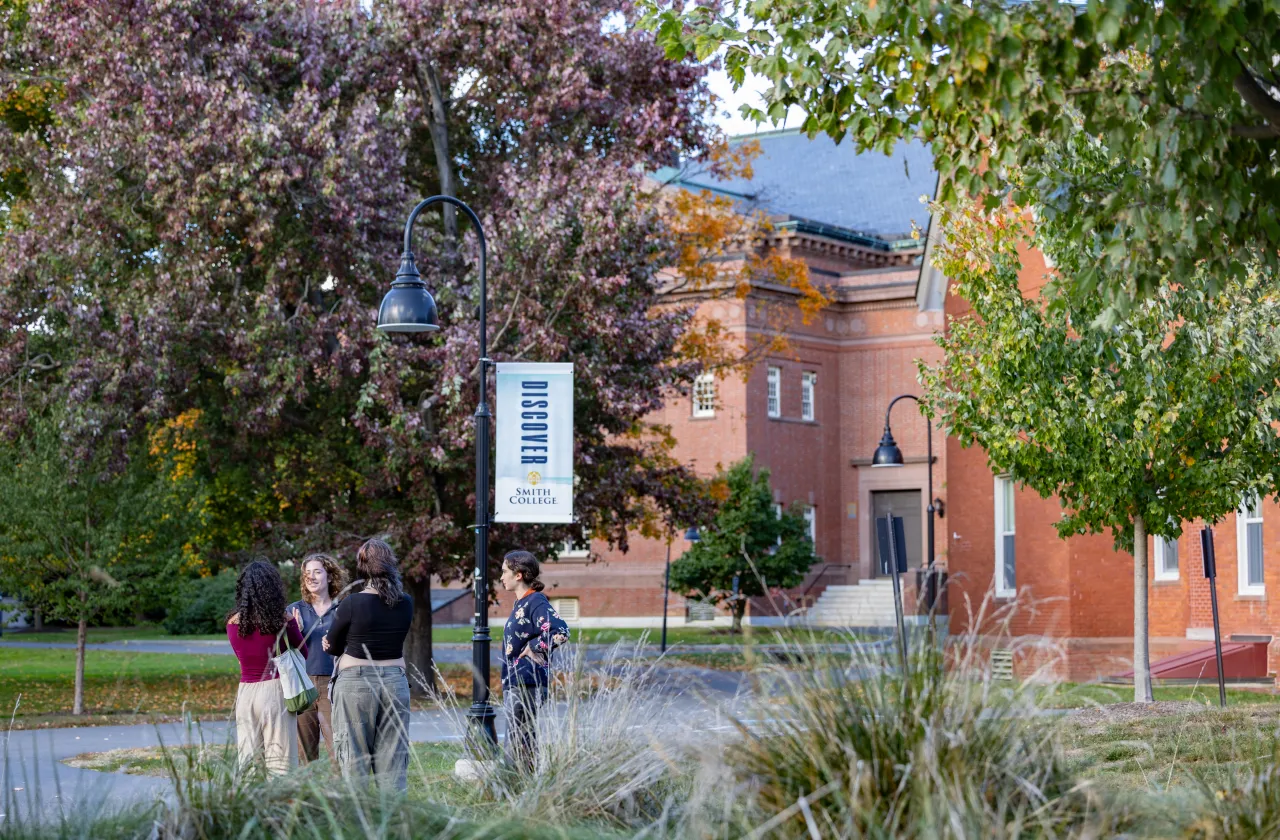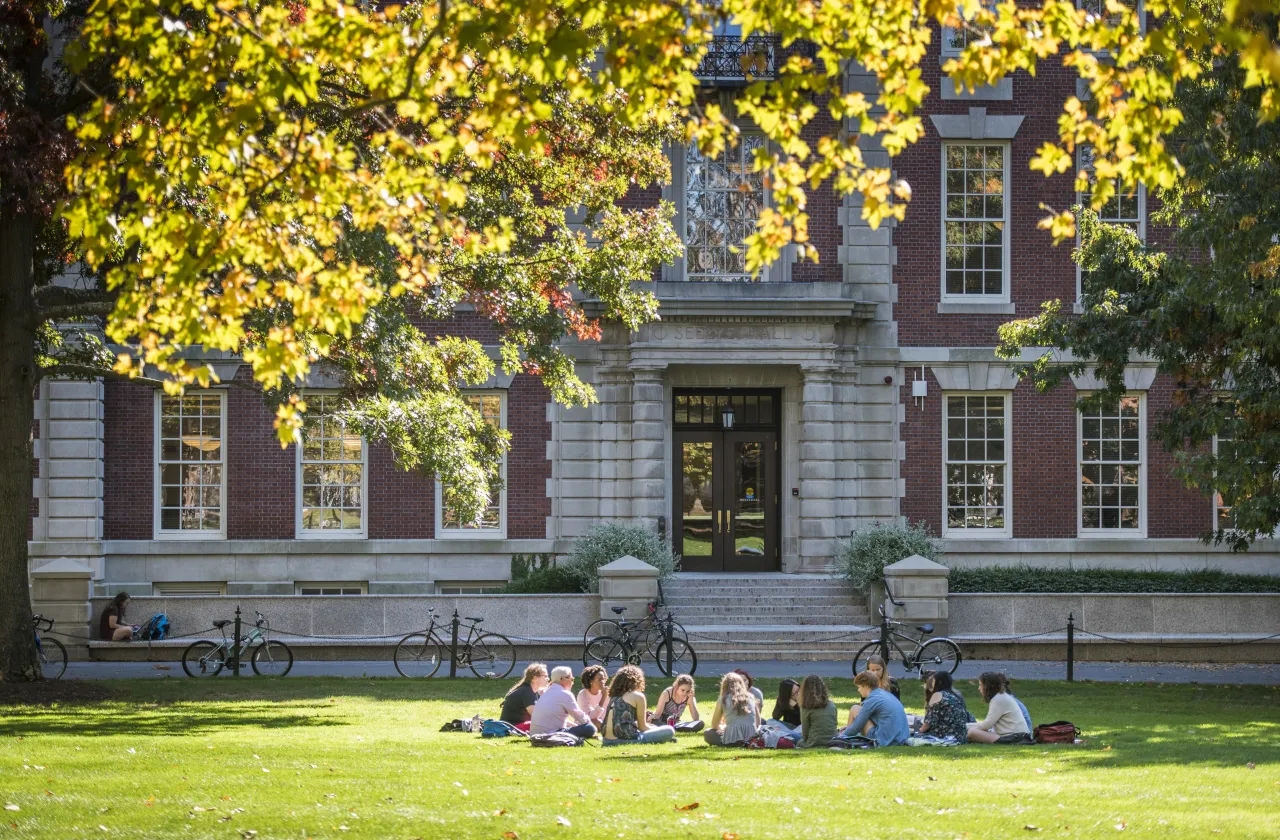Academic Integrity Board
The Academic Integrity Board supports the educational mission of Smith College by upholding a rigorous standard of academic integrity defined by Smith’s Academic Integrity Statement. The Board considers all cases of suspected violations of academic integrity by students, following procedures that ensure fairness and transparency for all involved. The Board’s mission is for its interactions with students and faculty to be educational for reporting parties, reported students, and the Board itself. The Board maintains confidentiality in all cases and requires all those involved in a particular case to respect the obligation of confidentiality.
Procedures & Resources
Procedural Overview

Academic Integrity Statement
Smith College provides its students with a world-class liberal arts education. The purpose of this education is not only to provide students opportunities for intellectual growth and advancement, but also to prepare its graduates to make powerful contributions to the world. Upholding the integrity of a Smith education, then, is at once a responsibility to oneself and to the community.
The Academic Integrity Board defines academic integrity as the alignment of students’ behaviors in academic courses with Smith’s commitment to the honest pursuit of genuine learning. Smith students are responsible for upholding their own integrity by adhering to all course policies and properly acknowledging all sources used in preparing academic work. When assignments require students to submit work that is the product of their own intellectual labor, faculty expect that students have neither used unauthorized resources nor engaged in unauthorized collaboration with others. When courses require students to submit work that is the product of intellectual engagement with fellow students, students should follow all of the guidelines set out for collaboration. All submitted coursework of any kind must be the original work of the student(s). Faculty are expected to clearly communicate to students how honest engagement is defined in each course.
According to Smith’s Statement of Purpose, “the world needs a place where knowledge is not the end, but merely the beginning of creating incalculable good. And we will always be that place.” Delivering on this promise demands that students and faculty hold each other to the highest standard of academic integrity.
Board Membership
The Academic Integrity Board consists of the non-voting chair (the associate dean of the college), at least six voting faculty members, and at least 8 voting student members. Faculty members are appointed by the dean of the college.
Student members apply to serve on the Board and are chosen by members of the Board and a representative from the SGA.
Faculty wishing to serve on the AIB should contact the associate dean of the college.
Contact the Academic Integrity Board
Tina Wildhagen
Academic Integrity Board Chair
Associate Dean of the College
Associate Professor of Sociology
College Hall 101A
Email: academicintegrity@smith.edu
To report a case to the AIB, please use the Academic Integrity Board Reporting Form.



